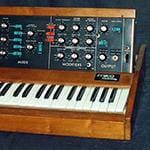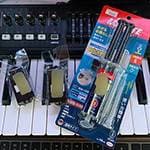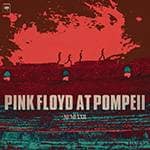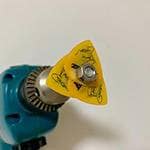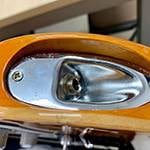Hello! I'm Joshua and I love to talk about Western music.
In this 10th article, I would like to introduce the band Styx hailing from Chicago, Illinois. When they first debuted, they focused mainly on progressive hard rock, but later they shifted toward a more pop-oriented sound. As their popularity grew, they also came to be known as a symbol of what’s often called "arena rock" or "corporate rock". Despite breaks in activity, reunions, and lineup changes, they remain active to this day, and they’re still releasing albums and touring with energy.
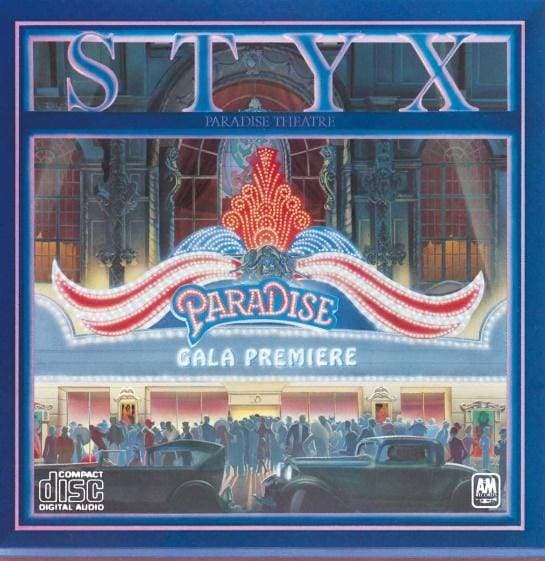
Their debut dates back to 1972, when the band consisted of five members: Dennis DeYoung (vocals, keyboards), James Young (vocals, guitar), John Curulewski (guitar), and the twin Panozzo brothers with Chuck on bass and John on drums. As a progressive hard rock band, they were known for their complex and lengthy compositions, but from the very beginning, Dennis stood out with his exceptional vocal range that’s capable of handling everything from ballads to hard rock. On the other hand, James brought his rough, gritty vocal tone and heavily distorted guitar, giving the band its more aggressive edge.
In 1973, the song “Lady” from the album Styx II became a sleeper hit two years after its release. The rapid shifts in musical style were emblematic of their early work. Beginning with a tender piano phrasing and Moog synth lines, followed by Dennis’s theatrical vocals, powerful guitar chords, and a band unison in a bolero-style rhythm.
■ Lady
After “Lady” became a breakout hit, John unexpectedly left the band. His replacement was Tommy Shaw (vocals, guitar). Despite his idol-like appearance with his blond hair and boyish face, Tommy brought exceptional songwriting ability, a well-balanced singing voice, and versatility on both electric and acoustic guitar that added a new dimension to the band.
With Tommy’s addition, Styx now had three unique singer-songwriters, which expanded their musical range from ballads to hard rock. This new lineup produced several hit singles, such as “Come Sail Away” (from The Grand Illusion, 1977) and “Babe” (from Cornerstone, 1979), further boosting their fame.
The peak of their career came with Paradise Theatre (1981), a concept album inspired by the rise and fall of a real-life theater in Chicago. It featured hits like “Rockin’ the Paradise”, a rock ’n’ roll track powered by Dennis’s bold vocals; “Too Much Time on My Hands”, a driven synth bass riff and hard twin guitars, written and sung by Tommy; “The Best of Times”, a musical-style ballad showcasing Dennis’s strengths; and “Snowblind”, a dramatic track with haunting vocals by both James and Tommy. The album was a massive success as it reached No.1 on the U.S. charts for three weeks.
■ Too Much Time on My Hands
However, as Styx achieved greater commercial success, they also began to attract critics. Successful rock bands of the time like Styx were increasingly mocked for their commercial appeal and labeled as “corporate rock”. Additionally, a certain religious group accused the band of hiding satanic messages in their song “Snowblind” when played in reverse, sparking controversy that even escalated into a political issue.
In response to this growing backlash, Dennis decided to turn the controversy into the theme of their next concept album. The result was Kilroy Was Here (1983), which revolved around the idea of a future where rock music is banned. However, the lead single “Mr. Roboto” marked a significant shift in style, featuring a synth-pop sound completely different from their earlier works.
The song famously included Japanese lyrics such as, “Domo arigato, Mr. Roboto, mata au hi made. Domo arigato, Mr. Roboto, himitsu o shiritai~” (“Thank you very much, Mr. Roboto, until we meet again. Thank you very much, Mr. Roboto, I want to know your secret~”). Dennis was inspired to use Japanese after being deeply impressed by Japan’s cutting-edge robotics industry during the band’s tour there.
■ Mr. Roboto
The conceptual presentation escalated in promotional videos and on tour. Tommy became fed up with the direction of the band and left, leading Styx to go on hiatus. He began a solo career and, in 1989, formed the band Damn Yankees with Ted Nugent (vocals, guitar) and Jack Blades (vocals, bass) from Night Ranger. They released two albums.
In 1990, Styx restarted with Glen Burtnik joining in place of Tommy. John Panozzo left the band due to illness, and after his passing, Todd Sucherman (drums), who had been filling in, officially became a member. Tommy returned to the band in 1995, but tensions within the group remained unresolved. In 1999, Dennis did not participate in the tour and was effectively removed from the band.
Normally, that might have been the end of the road, but Tommy and James decided to carry on. They brought in Canadian (and quite highly skilled) musician Lawrence Gowan (vocals, keyboards) to replace Dennis. Glen switched to bass to fill in for Chuck Panozzo, who stepped back for health reasons. In 2003, Ricky Phillips (formerly of The Babys and Bad English) replaced Glen on bass, leading to the current lineup.
Dennis was furious and filed a lawsuit against Tommy’s side over the rights to the band name. From Dennis’s perspective, he likely felt that he was the face of the band, so there was no way that young kid Tommy had any right to call his band Styx. However, as a result of the legal battle, Tommy was officially granted the rights to continue under the Styx name, essentially becoming the “official” Styx band.
Styx has continued touring and producing albums, and released their latest work, Crash of the Crown, in 2021 while resuming touring activities.
Meanwhile, Dennis has kept performing under his solo name, continuing what could be called “the unofficial Styx,” where a Tommy-style guitarist and vocalist even performs Tommy’s songs.
In a surprising twist, Dennis’s latest album 26 East, Vol. 2 (2021) features a guest appearance by fellow Illinois native Tom Morello of Rage Against the Machine. According to an interview with Tom, Dennis’s invitation was extremely modest, saying something like, “Um, you probably don’t know my music, but...”
Tom’s response? “Stop it! Every time I go home, we play Styx all night long! It’s an honor as a fellow Illinoisan!”—and he immediately agreed to join.
On a personal note: when I was in elementary school, the very first record I ever bought was Paradise Theatre.
And in the 2000s, I had the chance to see them live three times:
- In Tokyo, 2000 (at Kōsei Nenkin Kaikan)
- In Washington D.C., 2003 (MCI Center—on a triple bill with Journey and REO Speedwagon!)
- In Bristow, Virginia, 2004 (Nissan Pavilion—with Peter Frampton as the opening act)
It was an incredible, all-American experience every time.
■ July 23, 2003 – MCI Center concert flyer
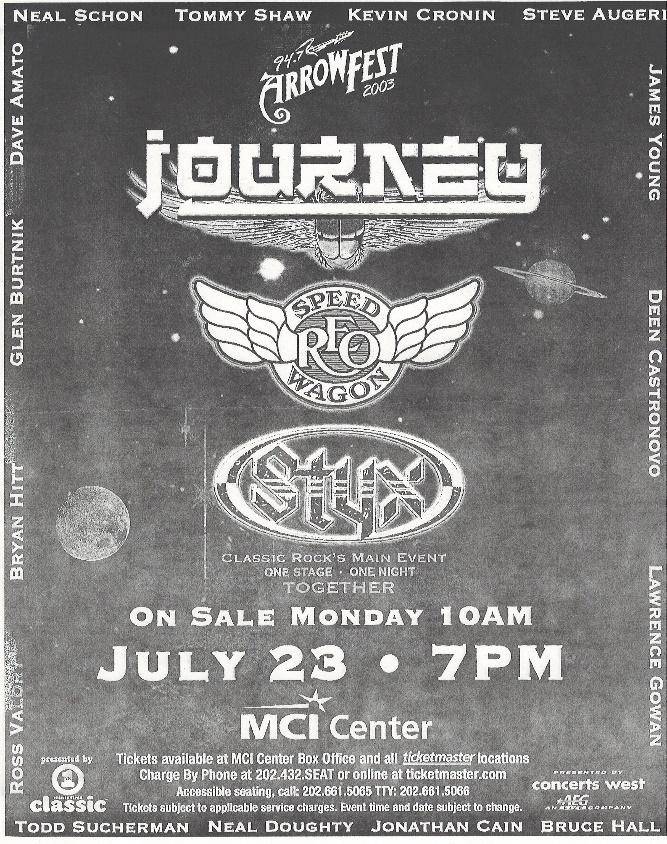
■ June 26, 2004 – Nissan Pavilion concert ticket
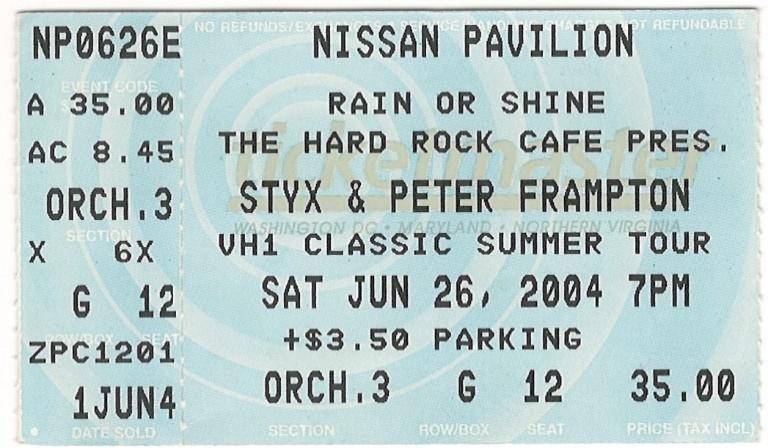
However, the most memorable experience for me personally was the Japan concert. At the time, I won a backstage pass through a special fan invitation campaign organized by the promoter, and I had gotten the chance to meet Tommy and James in person.
Tommy was incredibly friendly and open, even speaking candidly about Dennis's departure from the band. James said, “I’m so happy to talk with Japanese fans,” and he even gave me a hug.
The Paradise Theatre record, signed by all the members from that era, has become a lifelong treasure.
Back when I first bought that record, if I had told people, “Someday I’m going to talk with Tommy Shaw,” no one around me would’ve believed it!
■ February 10, 2000 – Tokyo Kōsei Nenkin Kaikan concert ticket and setlist (actual copy)
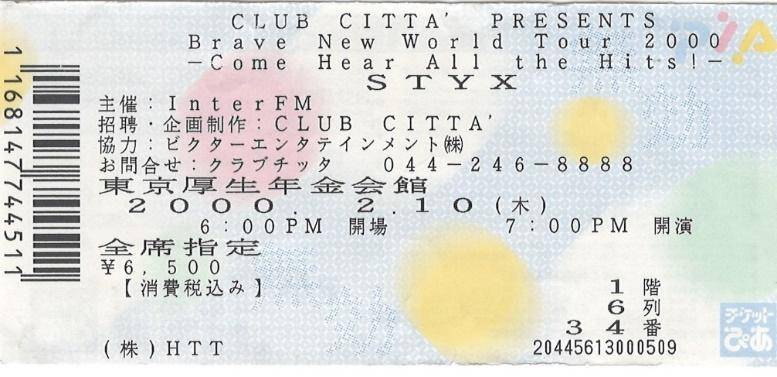
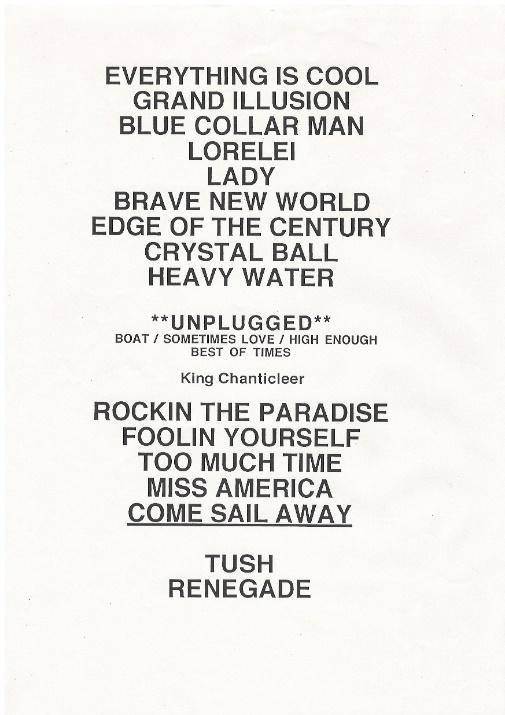
The “sound & person” column is made up of contributions from you.
For details about contributing, click here.






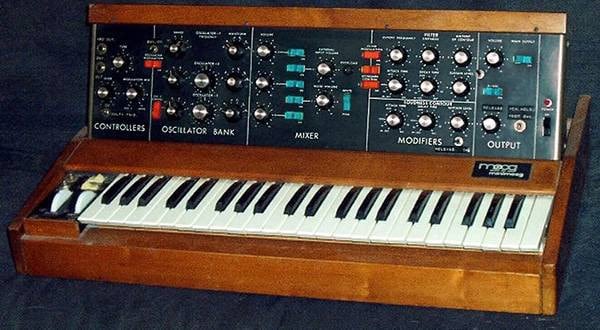
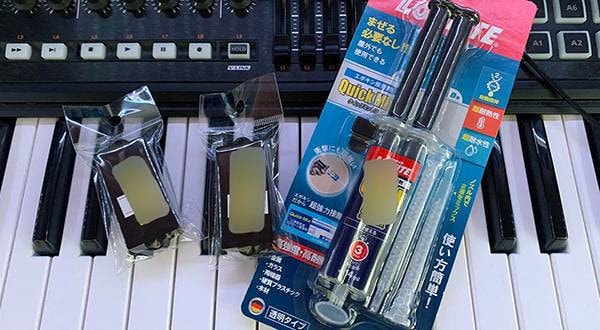
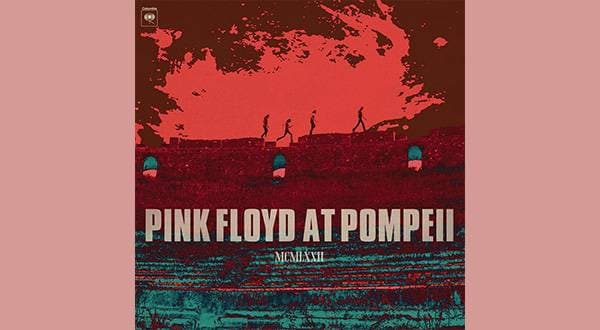
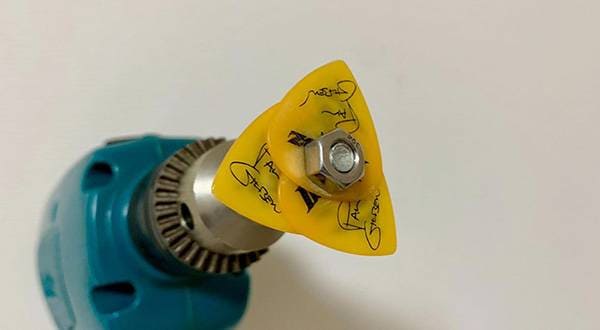
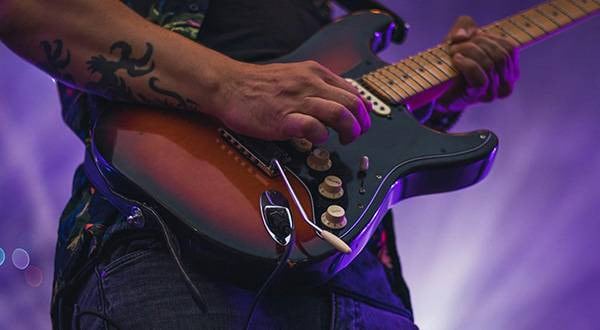
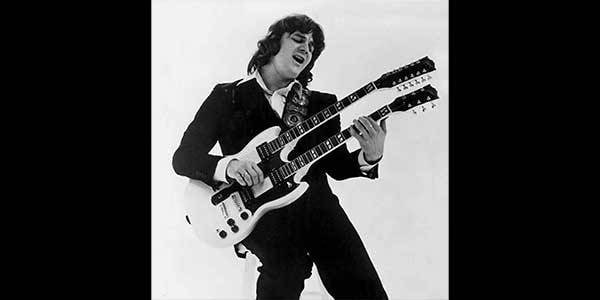
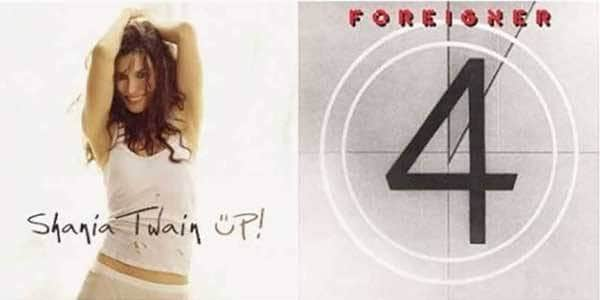
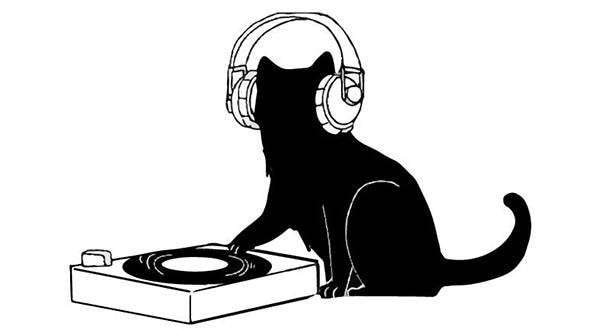
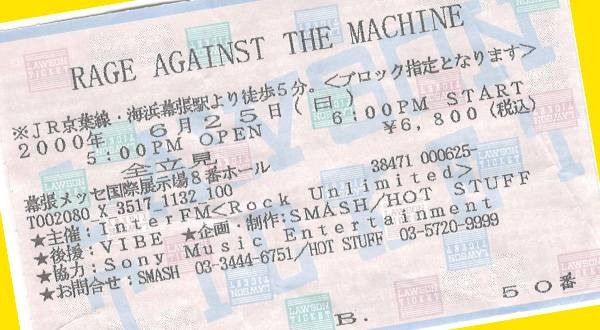
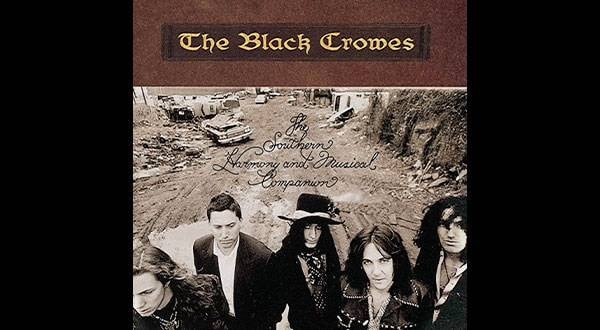

 お化けを倒してサウンドGET!
お化けを倒してサウンドGET!
 ライブ配信に必要な機材
ライブ配信に必要な機材
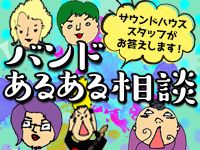 バンドあるある相談
バンドあるある相談
 今こそ音楽を始めよう! I’m sound girl
今こそ音楽を始めよう! I’m sound girl
 サウンドハウス社員が選ぶ 『おもしろ商品』はコレだ!
サウンドハウス社員が選ぶ 『おもしろ商品』はコレだ!
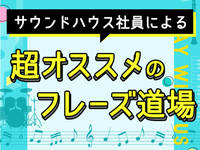 超オススメのフレーズ道場 ギター
超オススメのフレーズ道場 ギター
